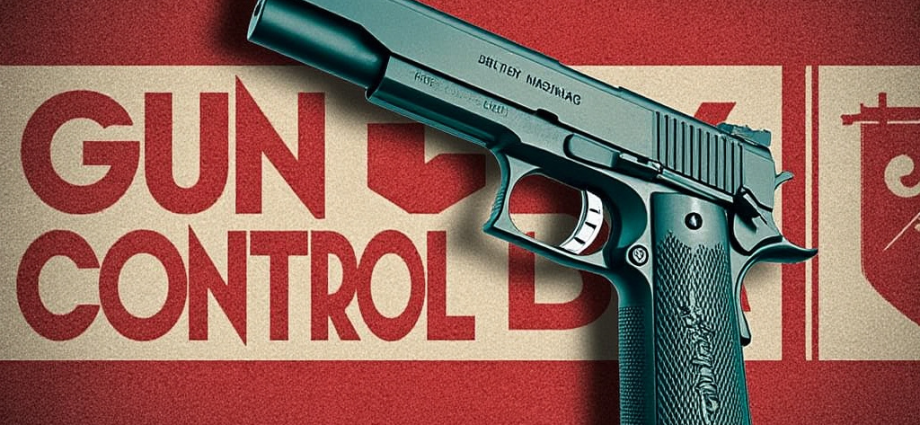The debate over gun control is one of the most contentious issues in modern society. It evokes strong emotions and opinions from both sides, with arguments grounded in safety concerns, constitutional rights, and social implications. This article explores the multifaceted dimensions of gun control, examining whether it serves as a necessary regulation for public safety or an infringement on individual rights.
The Case for Gun Control
Proponents of gun control argue that stricter regulations are essential for public safety. They cite statistics showing that countries with stringent gun laws tend to have lower rates of gun violence. For instance, nations like Japan and the United Kingdom, which have rigorous gun control measures, report significantly fewer gun-related deaths compared to countries with more lenient laws.
In Japan, with some of the strictest gun laws in the world, the country has an exceptionally low rate of gun violence. In 2017, Japan reported only 3 gun-related deaths. Similarly, the United Kingdom implemented stringent gun control laws, including a ban on handguns, following the Dunblane school massacre in 1996. Since then, gun-related homicides have remained low.
Mass shootings have become disturbingly frequent, particularly in the United States. Advocates for gun control believe that limiting access to firearms, especially assault weapons, could reduce the likelihood of such tragedies. Background checks, waiting periods, and restrictions on high-capacity magazines are often proposed as measures to prevent these horrific events. Legislative proposals such as universal background checks, reinstating the federal ban on assault weapons, and red flag laws are commonly suggested to address these issues.
Another argument for gun control is its potential to reduce overall crime rates. Studies have shown that stricter gun laws can lead to a decrease in homicides and other violent crimes. By making it more difficult for criminals to obtain firearms, proponents argue that society as a whole becomes safer. Research from the Harvard Injury Control Research Center indicates that states with stricter gun control laws have lower rates of firearm deaths. Similarly, the Johns Hopkins Center for Gun Policy and Research suggests that comprehensive background checks and licensing requirements are effective in reducing gun violence.
The Case Against Gun Control
Opponents of gun control often point to the Second Amendment of the United States Constitution, which guarantees the right to bear arms. They argue that any form of gun regulation is an infringement on this fundamental right. For many, the ability to own and carry firearms is seen as a crucial element of personal freedom and self-defense. The Second Amendment, ratified in 1791, states, “A well regulated Militia, being necessary to the security of a free State, the right of the people to keep and bear Arms, shall not be infringed.” Key Supreme Court rulings, such as District of Columbia v. Heller (2008), have affirmed the individual’s right to possess firearms for self-defense within the home.
Many individuals believe that owning a gun is essential for personal protection. In situations where law enforcement may not be immediately available, a firearm can provide a means of defense against intruders or attackers. Opponents of gun control argue that restricting access to guns leaves law-abiding citizens vulnerable to crime. In rural areas with longer police response times, firearms can be a critical tool for self-defense. For individuals who may be targeted due to their profession or personal circumstances, carrying a firearm can provide a sense of security.
Critics of gun control also question the effectiveness of such measures. They argue that criminals, by definition, do not follow laws, and thus will find ways to obtain firearms regardless of regulations. Instead of targeting law-abiding citizens, they suggest focusing on better enforcement of existing laws and addressing underlying issues such as mental health and poverty. Alternative solutions include increasing funding for mental health services to address the root causes of violence, investing in community-based programs to reduce poverty and crime rates, and strengthening the enforcement of existing gun laws to prevent illegal firearm trafficking.
Finding Common Ground
While the debate over gun control is polarized, there are areas where common ground might be found. For example, both sides generally agree on the need to keep firearms out of the hands of individuals with a history of violent crime or severe mental illness. Enhanced background checks and improved mental health services are potential areas for bipartisan cooperation. Potential areas of agreement include expanding background checks to cover all firearm sales, including private transactions and gun shows, increasing access to mental health care and creating programs to identify and assist individuals at risk of committing violence, and implementing laws that require gun owners to securely store their firearms to prevent accidental shootings and unauthorized access.
The issue of gun control is complex and multifaceted, with valid arguments on both sides. Whether viewed as a necessary regulation for public safety or an infringement on individual rights, it is clear that the debate will continue to shape policy and public opinion for years to come. Finding a balanced approach that respects constitutional rights while ensuring public safety remains a challenging but essential goal.

